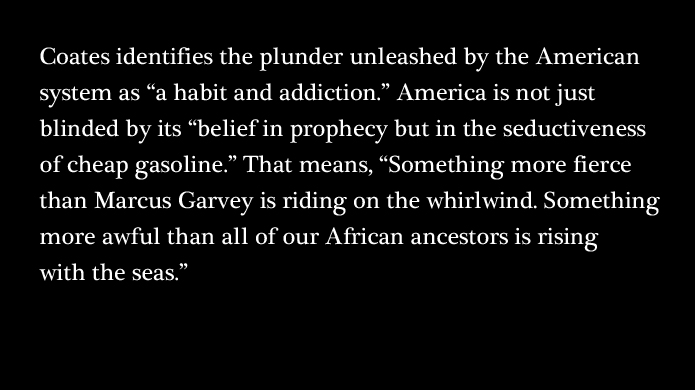Ta-Nehisi Coates Opens a Conversation Between Generations

By John Thompson.
The famed novelist, Toni Morrison, writes:
I’ve been wondering who might fill in the intellectual void that plagued me after James Baldwin died. Clearly it is Ta-Nehisi Coates. The language of Between the World and Me, like Coates’s journey is visceral, eloquent, and beautifully redemptive. And its examination of the hazards and hopes of black male life is as profound as it is revelatory. This is required reading.
Morrison is right. Coates is also correct in observing that it is still too difficult for most Americans to face up to the brutality he endured as a child in Baltimore during the 1980s. Coates grew up in a world that “no one survives unscathed.” Although it could be thrilling, it was also “a lifestyle of near-death experience.” Those streets left the black child with the permanent reminder that “any claim to ourselves … was contestable.”
It will be a jolt for many white people when we reach many of the book’s passages with the words “they,” “them,” and “your,” but we all must heed Coates’s wisdom and turn away from “the brightly rendered version of your country” and toward “something murkier and unknown.”
It is outrageous that a child such as Coates, growing up in a democracy which takes pride in the promise that we all can share in “the American Dream,” would come of age with the belief that the universe has a “moral arc bent toward chaos and then concluded in a box.” It is tragic that Coates was so forced to inveigh against his own humanity, and thus be “powerless before the great crime of history that brought the ghettos to be.” But, it is inspiring that he ultimately became such an articulate and “conscious citizen of this terrible and beautiful world.”
Being a former inner city teacher who has seen how my students enthusiastically responded to challenging Ta-Nehisi Coates Opens a Conversation Between Generations - Living in Dialogue:
Last spring, when my son was denied admittance to the computer lab during high stakes testing time (we had opted him out), I raised a stink, writing an editorial in our local paper protesting not only that he was denied a resource he needed to complete a report he was writing, but also the way he was denied: a curriculum specialist told his teacher that “he can’t be in here.” Not only does standardized testing limit accessibility to school computers (which is even more unfair to students who don’t have computers/internet at home), but as this Huff Post video explores, it prevents students, especially girls and children of color, from learning an essential 21st century skill: how to code.http://www.livingindialogue.com/from-the-web-testings-war-on-computers-2/
